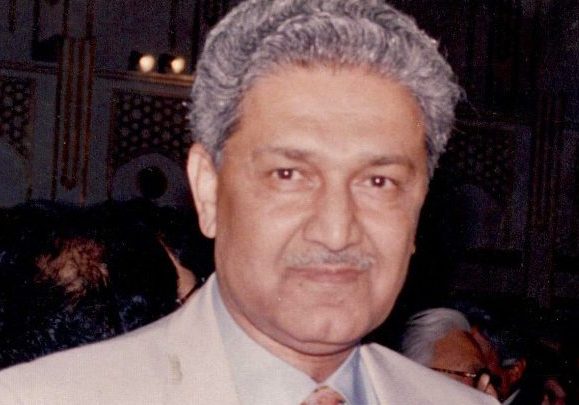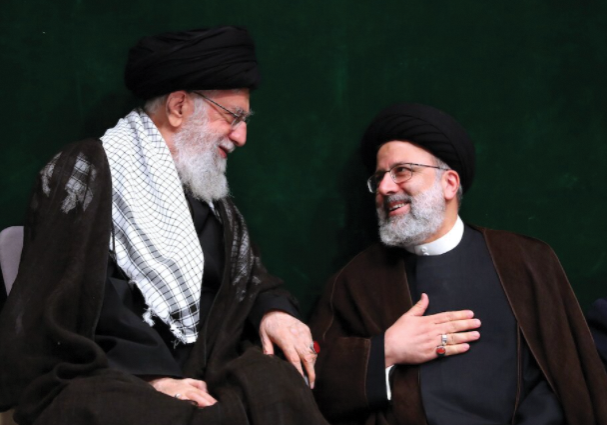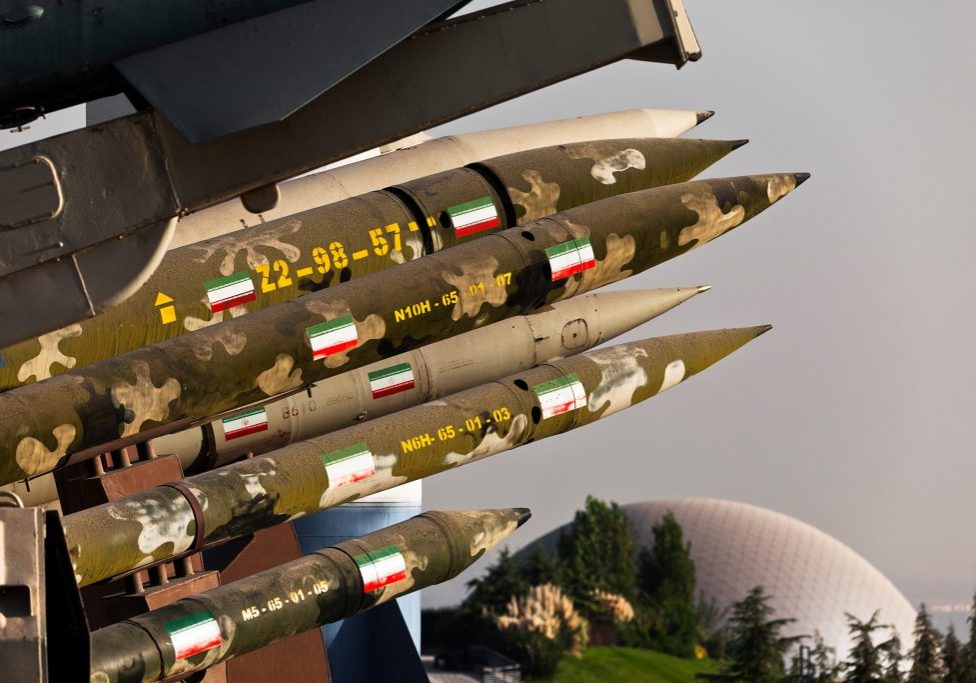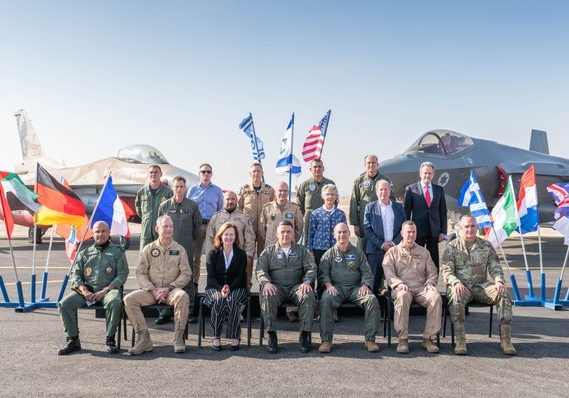Australia/Israel Review
The Reset Button
Jul 27, 2010 | Ehud Yaari
Changing Policies in Washington, Changing Middle East Realities
By Ehud Ya’ari
I think we have a few major shifts taking place in and around the Middle East – the “Muddle East” as I always call it. The most important one is a major shift in the Obama Administration’s approach to the Middle East. It’s unannounced, it’s not declared, there were no speeches about “change”, but there is a major change underway.
I believe that the President, his campaign team, and the professionals of the National Security Council and the White House dealing with the Middle East have reached the conclusion that they have taken the wrong path over the past 18 months. Are they going to admit it publicly? I doubt it. Do they say so privately? Some of them do.
And this is why all of a sudden we have seen a different type of meeting between Prime Minister Bibi Netanyahu and Obama. And a major effort on the part of the President, for the first time since his election, to be nice to the Israeli people by giving an interview to an Israeli journalist. They have reached the conclusion that keeping a distance from Israel, picking unnecessary fights with Israel, was not going to advance the peace process. They have reached the conclusion that by distancing themselves from Bibi, from Israel, they are not getting anything in return from the Arab world. And therefore, the change.
And this is why Rahm Emanuel, Chief of Staff to President Obama, when he went to Israel recently on a private visit, a bar mitzvah for his son, said in so many words, “We screwed up.” And this is why the President himself said, “I went into the minefield of the Middle East and I’ve lost a few fingers.”
I think they’ve also reached the conclusion that policy which is based solely, exclusively, on extending the hand, unclenching the fist, and seeking engagement, is leading nowhere. They got nothing in return. Neither from Syria nor Iran, etc.
Obama has not replaced so far – I think it’s coming – his Middle Eastern team, but he’s already in the process of shifting policy. Now what is the shift? On Israel, I think the Americans are slowly coming around to the concept that going for the elusive final status “end of conflict, end of claims” deal prohibits them from achieving tangible results in the short term in the form of an Israeli-Palestinian deal which falls short of final status. Do not expect, please, any American declaration that the US no longer pursues final status. They will never drop that ball, and rightly so. And also we Israelis should not drop the ball and give up the pursuit of a final status deal with the Palestinians. But in the meantime you can do a lot of things. This is one element of Obama’s changing policy.
Number two is on Iran, and it’s a major change. I think that around the President, and his foreign policy team, they have already reached the conclusion that there is no option of containing a nuclear Iran, as has been suggested by different American strategists and pseudo-strategists. And the reason they have reached the conclusion that there is no containment option for the US is because the Arabs told them so – the Saudis, the Egyptians, the United Arab Emirates, and others. Not the Qataris.
They have all told the American Administration and the President himself, “What are you going to do about Iran? We cannot live with a nuclear Iran.” And when you talk to top American officials, at the Pentagon, White House and State, about Iran now, it’s completely different music than what you would have heard three, four or five months ago. My own conclusion, and that of many of my friends in Washington DC, is that when the Americans are now saying that all options are on the table, they are indeed on the table.
They do not have any enthusiasm about going after the Iranian nuclear installations, they would rather do something else, they hope sanctions will work, they hope to see, at the end of the day, some deal worked out over the enriched uranium of the Iranians. But they also have the confidence that they are capable of: a) undertaking a military move, and b) containing and withstanding whatever Iranian retaliation may be coming.
I think it’s a very important change in American attitude. It’s not yet a policy, but the attitude has changed. And this is a new setting for new understandings between Bibi and Obama. There is no daylight, I would say, between Israel and the United States now concerning Iran and, on some issues, I would add, the EU. Some or the leading countries of the EU are even tougher than the Americans, certainly Sarkozy and Merkel.
The other change that I suggest we detect in the Obama policy has to do with Afghanistan. I’m not going into it in detail, I know that it’s very much in the Australian media, I would just say that my understanding is that the Obama Administration is going along in Afghanistan with the advice of the Pakistanis and the Saudis. That is, try to strike a deal with moderate Taliban, try to have an internal reconciliation in Afghanistan. That means that in Afghanistan, too, the United States is taking a policy which is perceived in Teheran as anti-Iranian. Historically, in Afghanistan, Iran is the ally of India. And I’m sure that many of you have noticed that Karzai just removed his all-important minister of intelligence, who was the key man, the point man, for his association with the Indians.
But I think that the appointment of Petraeus after the McChrystal fiasco, and what we see emerging as a different policy in Afghanistan, indicates this direction. They are going the Pakistani-Saudi way. And I refer you to the last meeting between Obama and King Abdullah of Saudi Arabia, where Afghanistan was the main topic apart from Iran.
The other issue is Iraq. They have to start moving out, this year. But all of a sudden in Iraq, new music is played on the White House piano. Now they are saying, “The Americans may be out, but we need UN forces.” That will consist basically of American soldiers. The first indication was given by General Odierno, who is now the Commander in Iraq. The team around Obama understands that it’s crucially important what government Iraq will have. They do not want a government in Iraq which is going to be influenced, sponsored, coerced by the neighbouring Iranians. They need a coalition of the two main secular lists that won the election: Iyad Allawi, with what he calls the Iraqiya, “Iraqi” list, supported financially, etc., by Saudi Arabia, and in that respect Syria, representing a Sunni-Shiite alliance; and the State of Law list of current Prime Minister Nouri al-Maliki – who has refused so far to accept Iranian dictates as to how and with whom to form his new coalition.
The Americans understand that they have to make sure that the new government in Iraq is one which will have, of course, to maintain cordial relations with Iran – there are too many interests involved there. But they don’t want a government of Iraq which will enter or join the other shift in the region which is the emergence of what one may call the “Northern Alliance”, which is the second main point I want to make.
We see a new configuration in the region now – the emergence of a very loose alliance between Iran, Syria, Turkey, and their extensions: Hamas amongst the Palestinians, Hezbollah and its allies in Lebanon. It’s a loose alliance of those leaders and countries that believe that declining US and Western power in general in the region allows others to become the dominant forces in the region. And these are forces that sponsor muqawama, “resistance”, as they call it – the doctrine of ongoing combat, of everlasting jihad – these are the countries that think that Arab decline should be exploited by the non-Arab powers of the region in order to claim their influence and status in the region. Syrian President Bashar al-Assad, in private, is saying it’s just a matter of time before Iraq joins this new axis. Just let the Iraqis form a pro-Iranian government and you have Iraq will all its resources as part of this dominant new axis in the region.
Yes, there is a very important element of rivalry and competition between Iran and Turkey within the same axis. They are fighting to buy the same friends all over the region, they are fighting to gain influence and a foothold all over the weakening Arab states. Nominally, they take different approaches. Turkey recognises Israel, maintains and will maintain diplomatic relations with Israel – no longer the strategic alliance with Israel, but a low-level of relations will be maintained, so I am told by the Turks. Turkey has been facilitating and is again offering its services to facilitate and moderate peace talks between Israel and Syria, whereas Iran as you know does not accept the legitimacy of the state of Israel.
But, this is the Middle East, you can have a system of cooperation which involves a high degree of competition and rivalry within it. And this is what we see; this is the new structure of the region.
Basically, the Israeli-Arab conflict is no more. In many ways we are late in realising that it is being replaced by conflict between Israel and the non-Arab Muslim states of the region. Instead of a conflict between Israel and the core, the heartland of Arabism, the Levant, it’s a conflict between Israel and the periphery. And I remind you that David Ben-Gurion, in his time was dreaming about the possibility of having an alliance between Israel and the states in the periphery: Turkey, Iran, and Ethiopia, at the time. That’s over now.
A few words about Turkey’s drang nach osten [“Push to the East”, a German Imperial and Nazi foreign policy goal]. Turkey is ruled by the AKP, the Erdogan party, which is a Turkish variation of the Muslim Brotherhood. Nothing else. A Turkish variation of the Muslim Brotherhood. They have begun the policy of what I jokingly refer to as the drang nach osten, going back to the East. Not because the EU slammed the door on them – which they didn’t yet. They are going to the Middle East because this is where they see their strategic depth.
Anybody who wants to understand what is happening today has to go back to a book that Turkey’s Foreign Minister Ahmet Davutoglu wrote when he was a professor. He’s a sort of a philosopher-king, who sees himself as a Muslim Kissinger. He wrote it years ago, he is just implementing it now. The Middle East, the Arab world, is the strategic depth of Turkey. And Turkey is trying to revive something which you can refer to as neo-Ottomanism. Whatever was part of the old caliphate of the Ottoman Empire, is to be the playground of Turkey from now on.
This “Northern Alliance”, this loose new structure, has many manifestations. For example, ten years ago Turkey threatened to invade Syria and informed Israel of the ultimatum they served to the Syrians. Today Syrians and Turks move between the two countries without visas, the volume of trade with Syria is surpassing already the volume of trade between Turkey and Israel, and it’s going on. We are talking about huge economic interests.
This “Northern Alliance” is now putting pressure on other countries to join them in policies which are at the very least critical of Israel. Just to give an example, there is pressure from Ankara on Azerbaijan, which has a very close, almost intimate, relationship with Israel, to follow the Turkish example and cool down relations. So far the Azeris have not responded. And there is a huge pressure from Iran on Georgia to do the same. Georgia has had, and has still, very close relations with Israel.
Now I want to jump back briefly to the Israeli-Palestinian track under the new guidelines of the Obama Middle East policy. I think that the general idea is that Israel will have a national unity government. I believe that it was indicated to the Americans that the door is open for Kadima to join the government. I believe that Kadima leader Tzipi Livni is willing to join a Bibi-Barak-led coalition government. How do I know? She told me.
I think that the general understandings are already there. I think what is delaying it is people awaiting the prosecutor general, who’s taking too long reviewing the evidence against current Foreign Minister Avigdor Lieberman.
But I think the idea is a national unity government in Israel and a switch to direct negotiations with the Palestinians. Please note, that the European Union is now saying to PA President Mahmoud Abbas and the Palestinian PM Salam Fayyad, “We cannot continue contributions to the Palestinian Authority at the present pace unless we see progress on the peace process.” And that’s coordinated with the Americans.
Abbas has instructed Fayyad to stop threatening a unilateral declaration of independence next year, as Fayyad was very fond of doing, and he has taken over from Fayyad running negotiations with Israel. Fayyad, you can read a lot about him, and my friend Tom Friedman now gave everybody the advice to invest in the al-Quds, the Nablus stock exchange. Please don’t buy any shares there.
There is a phony idea that there is something which is called Fayyadism, that this Prime Minister, the favourite of the West and the donor states, is really building the infrastructure of a Palestinian state. He is not, unfortunately. He is building a new patronage system through an ever-expanding bureaucracy. I can take you through the West Bank, whoever wants, and I’ll show you the signs everywhere: “Here we will have a new sewage plant, and here…” big signs, all over the place. Except all those signs refer either to projects of USAID, which were approved long ago, or projects which will never take place. The only thing they are doing is building roads. That’s important, but that’s all that they are doing.
I think that what the Palestinians have in mind now is a package which is comprehensive and provisional at the same time. That is, a package that will allow for an Israeli withdrawal from most of the West Bank, probably all the way to the barrier line, and allow for involvement of the Palestinian state in running the Arab neighbourhoods of Jerusalem and management of the Holy Basin. I believe that they have been talking about possibilities on refugees: without reaching a final resolution of the refugee issue, there is a lot that can be done. And of course, establishment of a Palestinian state. I think that Barak for sure – Bibi will never say publicly at this point but I suspect him too – are willing to go now, together with the Americans, to a move which means statehood first, peace later.
The Americans are demanding now from the Palestinians something very important, to switch from proximity talks to direct talks. And Mr. Abbas is saying, okay that’s very difficult for me, how do I explain it? There have been so far no major concessions on the future Palestinian state from Netanyahu. So he is asking Obama to give him certain assurances and guarantees and I think some guarantees will be coming his way. Americans will make some assurances to the Palestinians that direct negotiations are not going to be fruitless, and I pointed out before where they [need] to head –an interim deal, which is disguised as a phase in the implementation of a broader agreement.
This will entail negotiation only with the Palestinian Authority – at this point there is nothing to negotiate about Gaza since Israel withdrew from there, and it’s internal Palestinian business to settle the differences between the PA and Hamas. After the Turkish flotilla, which was of course an ambush, orchestrated by the Turkish Government, Israel basically removed most of the civilian “siege”, if you want to call it that, over Gaza, though Egypt did not. This assures Hamas of a longer stay in power in their statelet, in the emirate of Gaza. But negotiations are to be held between Israel and Abbas, and Abbas is going to negotiate over the Gaza Strip whether he has control there or he doesn’t. And he doesn’t.
Ehud Ya’ari is Lafer International Fellow at the Washington Institute for Near East Policy and Middle East commentator for Channel 2 News in Israel. He is the author of eight books on Middle Eastern affairs. The above is excerpted from a talk he gave for AIJAC in Melbourne on July 12.
Tags: International Security






